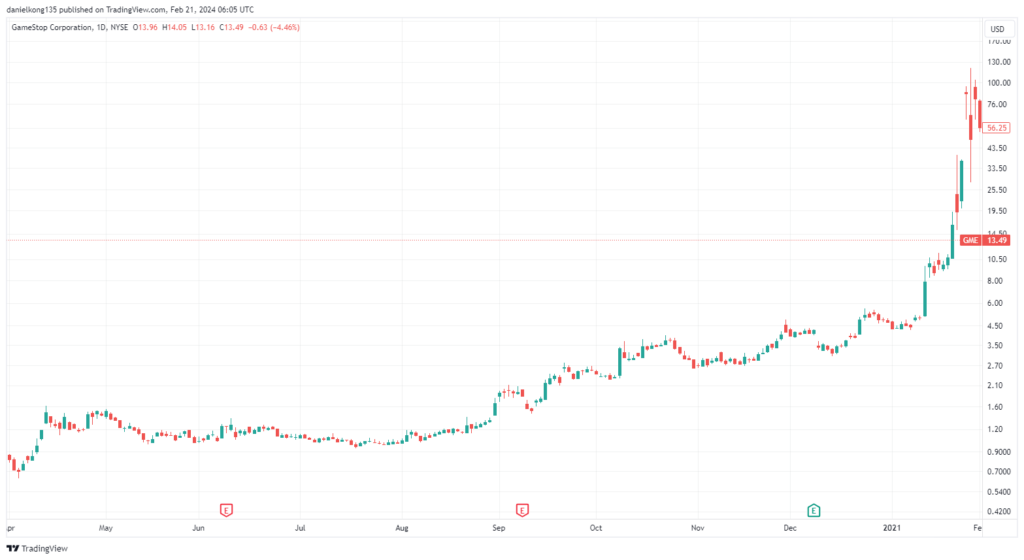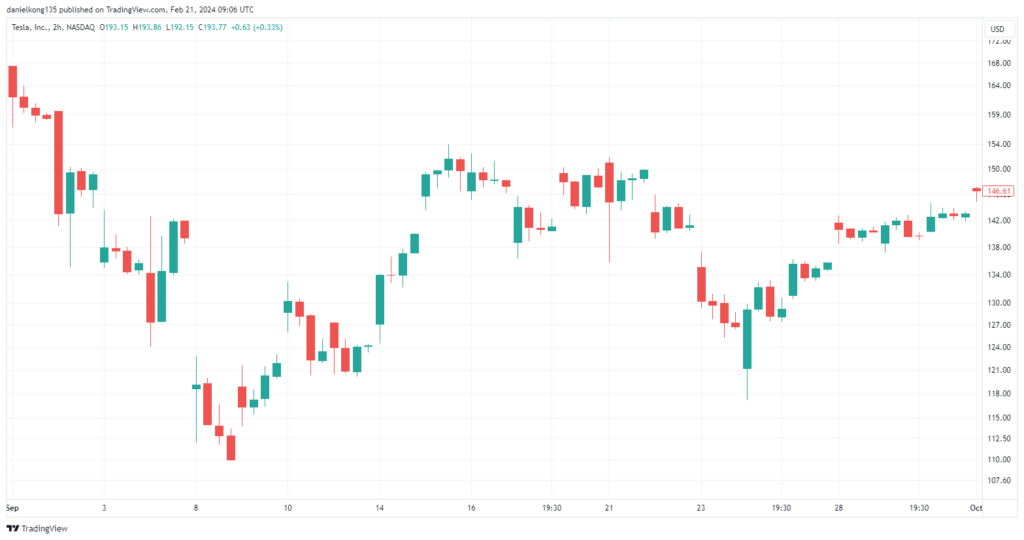In the financial markets, news plays a pivotal role in shaping investor sentiment and market trends. Among the plethora of trading strategies employed by traders, news trading stands out for its direct engagement with real-time events and news information.
When it comes to news and trading, there is the saying ‘buy the rumour, sell the news,’ which highlights how market trends and traders’ actions often follow a pattern. But just how true is this saying, and how can it be applied? In this article, we’ll dive into news trading as a strategy, while dissecting the concept of “buy the rumour, sell the news”.
Key Points
- News trading leverages real-time events and information to influence market trends, focusing on economic, political, and corporate news to predict market reactions.
- The psychological aspect, including the ‘buy the rumour, sell the news’ phenomenon, highlights the importance of understanding market sentiment and herd behaviour in trading.
- Effective news trading requires tools like economic calendars, real-time news feeds, sentiment analysis tools, and automated trading systems, coupled with strong risk management strategies.
What is News Trading?
News trading is a strategy where traders make decisions based on news releases and global events. It operates on the understanding that news significantly influences asset values and market sentiment.
By analysing economic calendars, earnings reports, political news, and more, traders attempt to forecast market reactions and adjust their positions to make returns from anticipated movements. This approach requires not just reacting to news but predicting its impact on the market in advance.
Unlike relying on past price data and patterns like in technical analysis, news trading focuses on the effects of economic, political, and corporate announcements. The key to success in news trading is the ability to quickly interpret news and act before the market does. Effective news traders are those who navigate these elements skilfully, positioning themselves to make returns based on the market’s response to news.
Types of News and Their Market Impact
The impact of news on financial markets can vary dramatically based on the nature and significance of the information released. News can be broadly categorised into economic, political, and event-driven categories:
- Economic News: This includes interest rate decisions, employment reports, GDP figures, and inflation data. Such news can cause significant volatility in the markets, as they directly impact the economic health of a nation and, by extension, the valuation of its currency and securities. You can find the latest economic data releases in our economic calendar.
- Political News: Election results, geopolitical tensions, trade negotiations, and regulatory changes fall under this category. Political developments can sway market sentiment and trigger fluctuations in asset prices, especially in sectors directly affected by policy changes. That’s why major political events, such as the upcoming US Presidential election, are closely watched by markets.
- Event-driven News: This encompasses corporate announcements such as earnings releases, mergers and acquisitions, and product launches. These events can lead to substantial price movements in individual stocks or sectors, offering lucrative opportunities for traders.
Understanding The Psychological Aspect of News Trading
The success of news trading lies not only in the factual details of the news itself, but also in understanding and anticipating how the market would react to the news.
The idea of ‘Buy the Rumor, Sell the News’ shows how this works: traders often act on what they think will happen, moving the market even before the actual news comes out. This insight into traders’ psychology sets the stage for exploring deeper aspects of market dynamics, such as market sentiment and herd behaviour, which further shape news trading.
Understanding Market Sentiment
Market sentiment refers to the overall attitude of investors and traders towards the financial market or a particular asset, influencing whether they are inclined to buy or sell. It is measured using various indicators, such as the Volatility Index (VIX), market surveys, and analysis of price movements and trading volumes.
By gauging market sentiment, traders can anticipate market trends and make informed decisions. For instance, a positive sentiment might indicate a good time to buy before prices rise, while a negative sentiment suggests it might be wise to sell.
Understanding and leveraging market sentiment allows traders to position themselves advantageously ahead of major movements triggered by news events.
Herd Behaviour and Its Impact
Herd behaviour is the phenomenon where traders follow the majority’s actions in the market, often disregarding their own research or the fundamental value of assets. This behaviour can lead to exaggerated market trends, as traders rush to buy or sell based on others’ actions rather than independent analysis.
It is measured through indicators like trading volume spikes, significant price changes without fundamental reasons, and social media sentiment analysis.
The GameStop stock saga in 2021 is a prime example of herd behaviour in the financial markets, where a large number of retail investors, driven by discussions on Reddit’s WallStreetBets forum, decided to buy the company’s shares in large numbers [1]. This collective action, largely ignoring the company’s poor financial health, led to a dramatic increase in GameStop’s stock price, causing significant losses for hedge funds that had bet against the company by short selling its stock.
GameStop’s stock, which was trading as low as $2.57 per share in April 2020, soared to a peak of $483 in January 2021 [2]. Following a 4-for-1 stock split in July 2022, the adjusted peak price became $86.88 post-split [3]. This showcases the dramatic and swift impact of investor herd behaviour.

News Traders’ Tools
News traders equip themselves with a variety of tools and strategies to navigate the fast-paced environment of financial markets. These tools often include:
- Economic Calendars: These calendars list scheduled economic events, such as central bank meetings, employment reports, and GDP releases, providing traders with a roadmap of potential market-moving events.
- Real-Time News Feeds: Access to instant news updates is crucial for news traders. Many rely on financial news platforms that offer real-time alerts and analysis.
- Sentiment Analysis Tools: These tools analyse market sentiment by scanning news headlines, social media, and other textual data to gauge the market’s mood towards certain news events.
- Automated Trading Systems: Some news traders use automated systems to execute trades at high speed, a technique known as algorithmic trading, to capitalise on news events before the markets can fully react.
Risk Management in News Trading
Setting Stop-Loss and Take-Profit Orders
Effective risk management is crucial in news trading due to the high volatility associated with news releases. Setting stop-loss and take-profit orders can help traders manage their risks by specifying a price level at which to exit a trade, whether in loss or profit.
Additionally, learn more about market volatility by reading our comprehensive article to understand its causes, impacts, and strategies traders can use to navigate through it for opportunities.
Diversification
Diversification across different asset classes and markets can mitigate the risks associated with news trading. By spreading trades, traders can reduce the impact of a negative news event on their overall portfolio.
This approach enables traders to balance potential losses in one trade with gains in another, creating a stable financial environment even in the face of unpredictable news developments.
The Importance of a Trading Plan
A well-defined trading plan, including predetermined entry, exit, and risk management strategies, is essential for success in news trading. This plan should account for the unpredictable nature of news events and provide a clear framework for making disciplined trading decisions.
Discover how to develop a trading plan with our comprehensive article. Learn what a trading plan entails and how it can transform your trading journey.
‘Buy the Rumour, Sell the News’ Example
A common example of the ‘Buy the Rumour, Sell the News’ strategy is seen around company earnings reports and central bank interest rate announcements. Traders often buy stocks or currencies based on the anticipation of positive outcomes, such as higher company revenues or an expected interest rate hike, driven by rumours or analyst forecasts.
This speculative buying pushes the price higher before the actual event. However, once the earnings are reported or the interest rate decision is announced, even if the outcomes are positive or meet expectations, prices often drop as traders sell their positions to secure profits.
This behaviour underscores the essence of the ‘Buy the Rumour, Sell the News’ strategy, where the anticipation of an event has a more significant impact on prices than the event itself.
For example, in anticipation of Tesla’s “Battery Day” event in September 2020, where revolutionary battery technology was rumoured to be unveiled, the company’s stock price surged from $110.07 on 8 September 2020, to $149.80 on 21 September 2020, driven by optimism and excitement for the event [4].
However, the event’s announcements, while positive, did not live up to the groundbreaking expectations set by rumours, leading to a 10% drop in Tesla’s stock price as investors who had bought into the rumour decided to take profits and sell off their holdings [5].

Conclusion
News trading represents a sophisticated and dynamic approach to the financial markets, leveraging the immediate impact of news on market sentiment and asset values. The strategy of “buy the rumour, sell the news” embodies the psychological intricacies of trading, where anticipation and speculation often drive market movements more significantly than the news events themselves.
Sign up for a live account with Vantage and utilise our Client Sentiment tool to help navigate market sentiment and asset values with precision. Elevate your trading strategy further with Vantage’s trading signals, derived from meticulous technical or fundamental analysis. These signals can provide timely suggestions for entering or exiting trades, empowering traders to make decisions that are backed by comprehensive indicators and market assessments.
References
- “The GameStop stock frenzy, explained – Vox” https://www.vox.com/the-goods/22249458/gamestop-stock-wallstreetbets-reddit-citron Accessed 21 Feb 2024
- “GameStop Mania from a Behavioral Finance Perspective – Medium” https://asmaa-aboufatima.medium.com/gamestop-mania-from-a-behavioral-finance-perspective-fc9c8a9771e5 Accessed 21 Feb 2024
- “GameStop – 22 Year Stock Price History | GME – Macrotrends” https://www.macrotrends.net/stocks/charts/GME/gamestop/stock-price-history Accessed 21 Feb 2024
- “Tesla, Inc. (TSLA) Stock Price history – Yahoo! Finance” https://finance.yahoo.com/quote/TSLA/history?period1=1598918400&period2=1601424000&interval=1d&filter=history&frequency=1d&includeAdjustedClose=true Accessed 21 Feb 2024
- “Here’s Tesla’s key level after Battery Day disappointment, according to one trader – CNBC” https://www.cnbc.com/2020/09/23/tesla-battery-day-garners-mixed-analyst-reactions-two-traders-takes.html Accessed 21 Feb 2024



